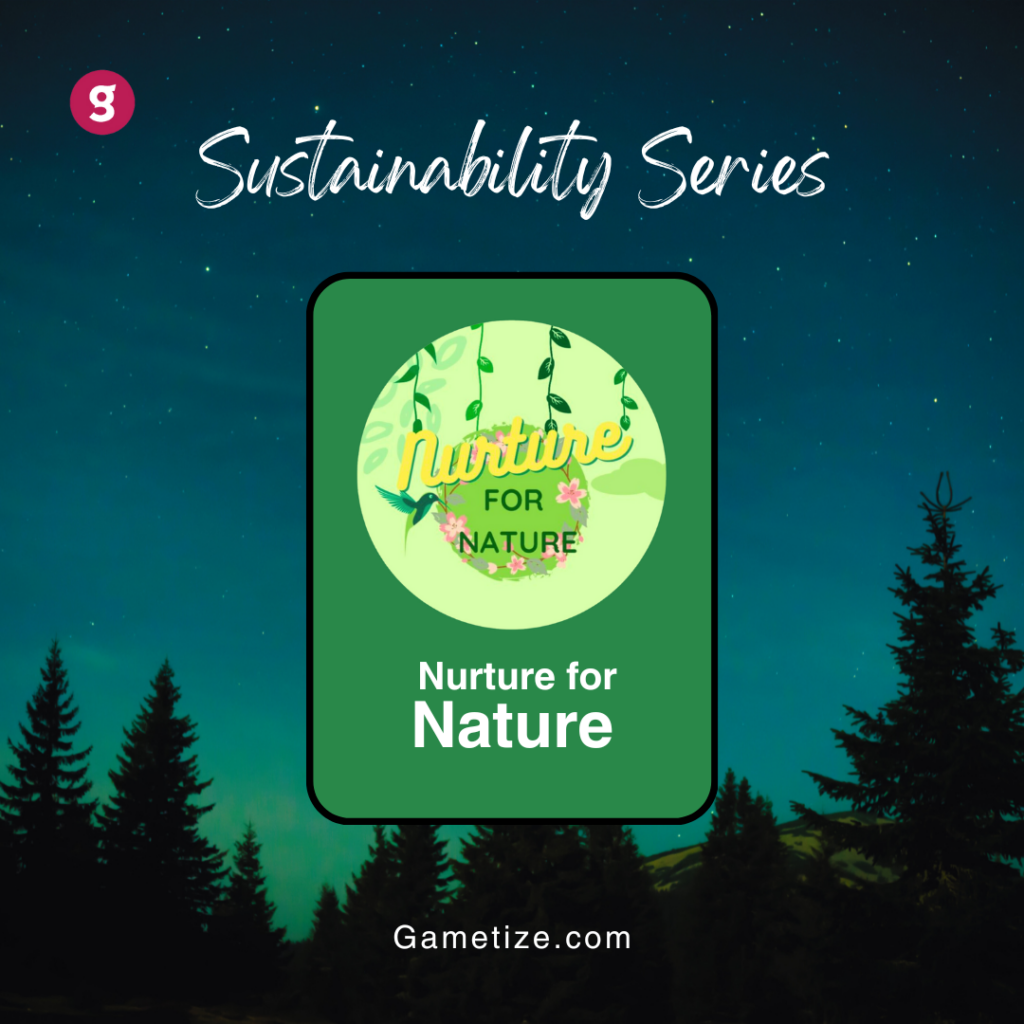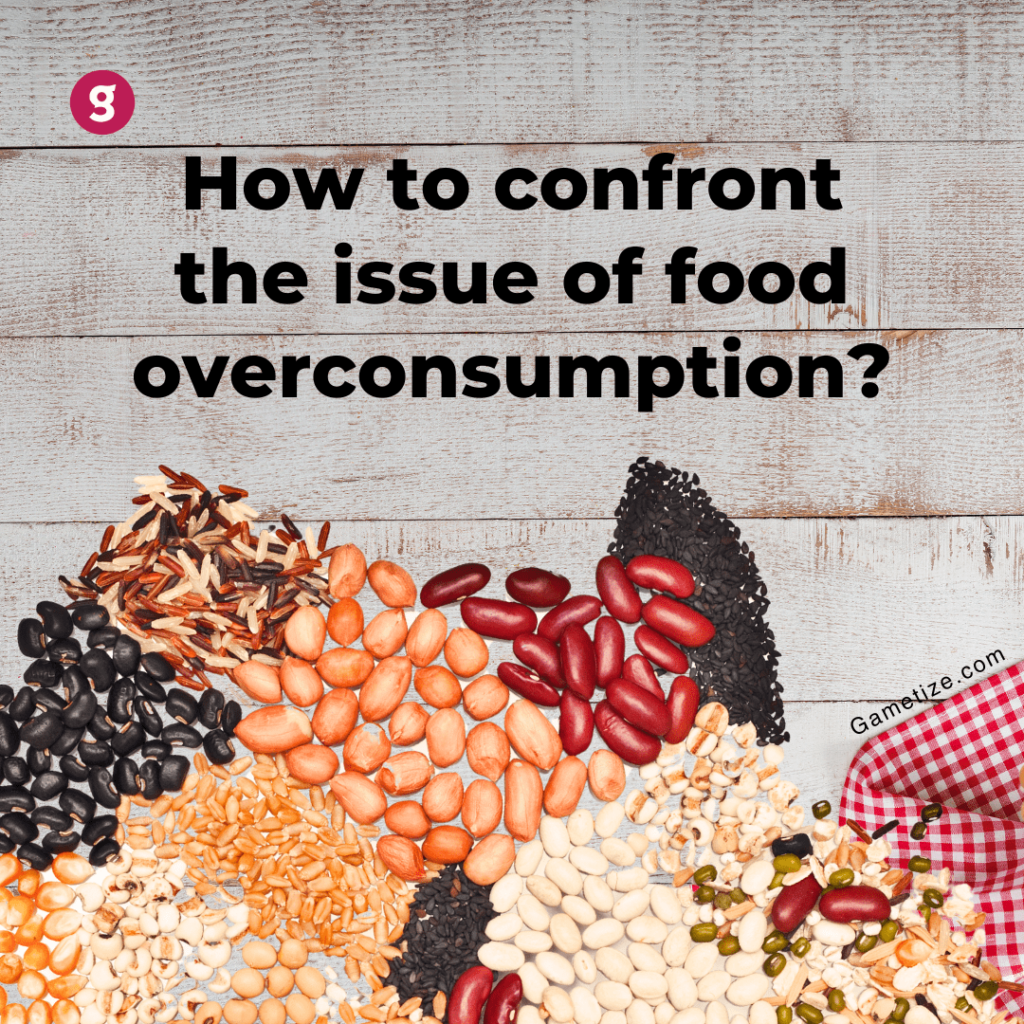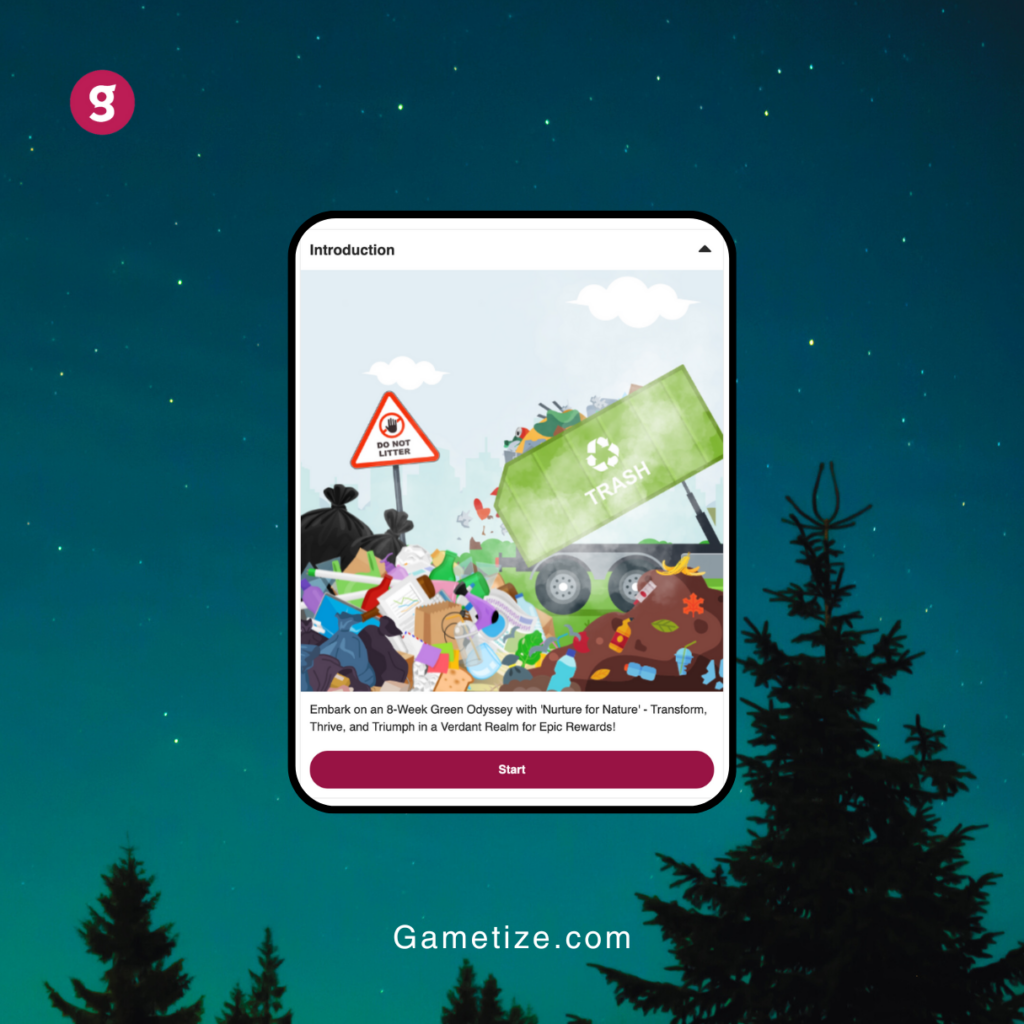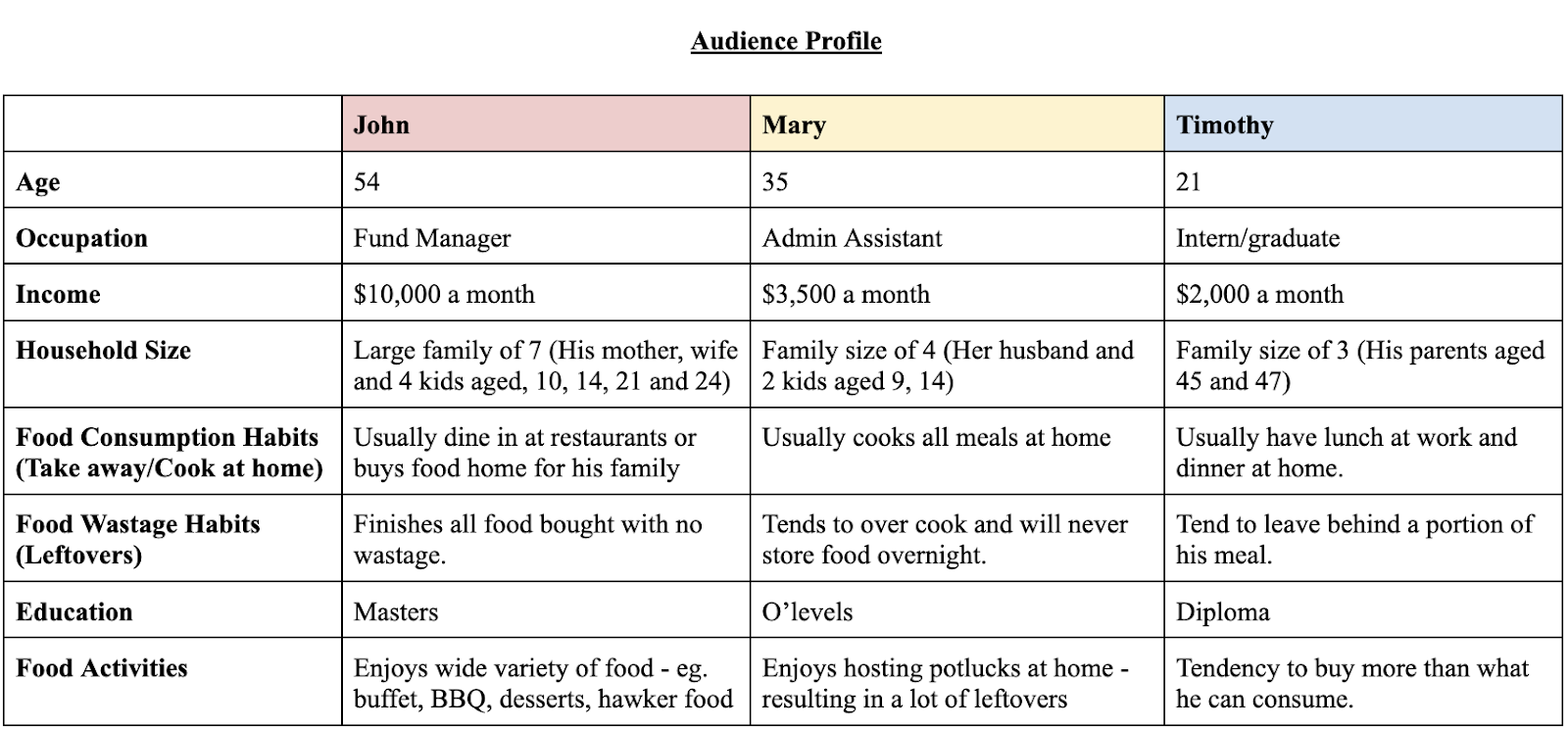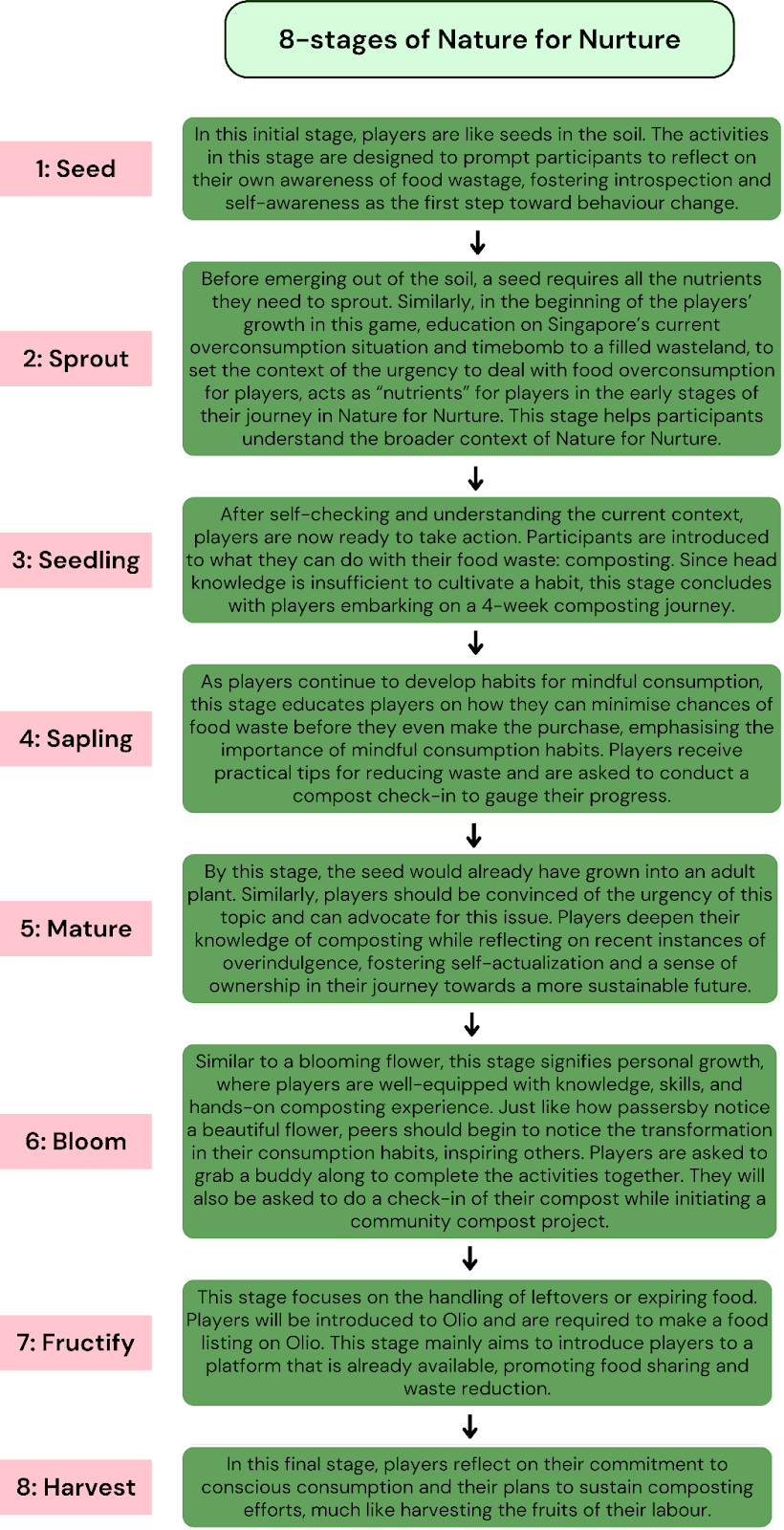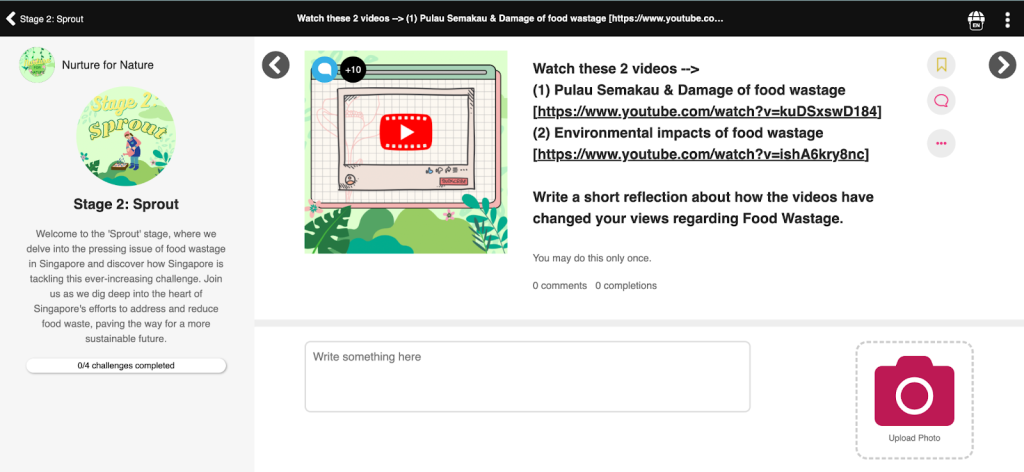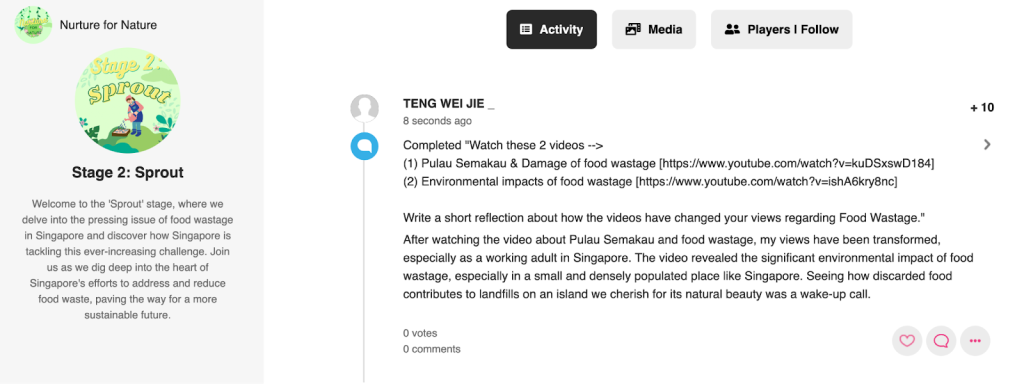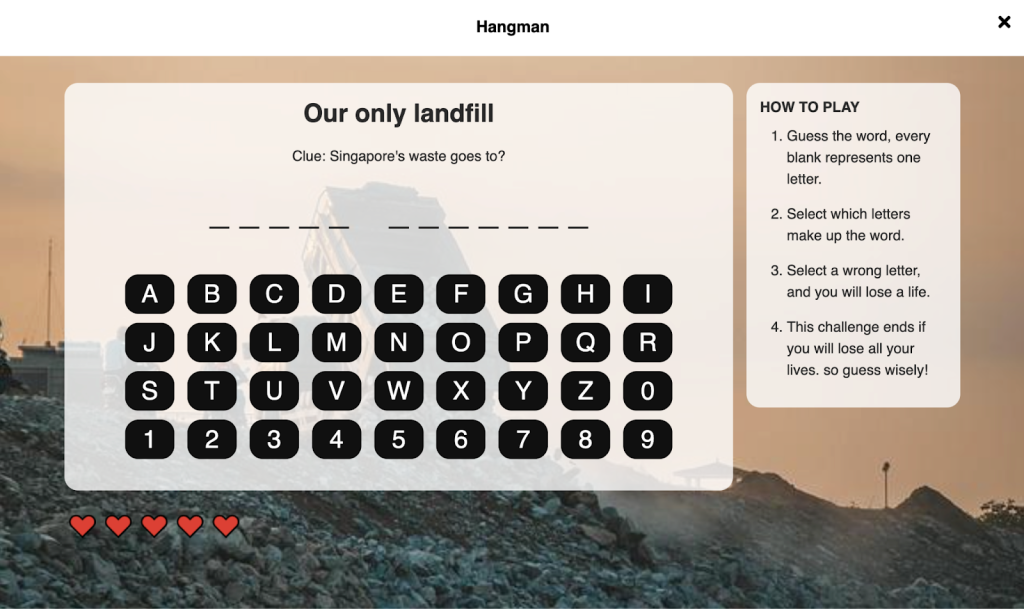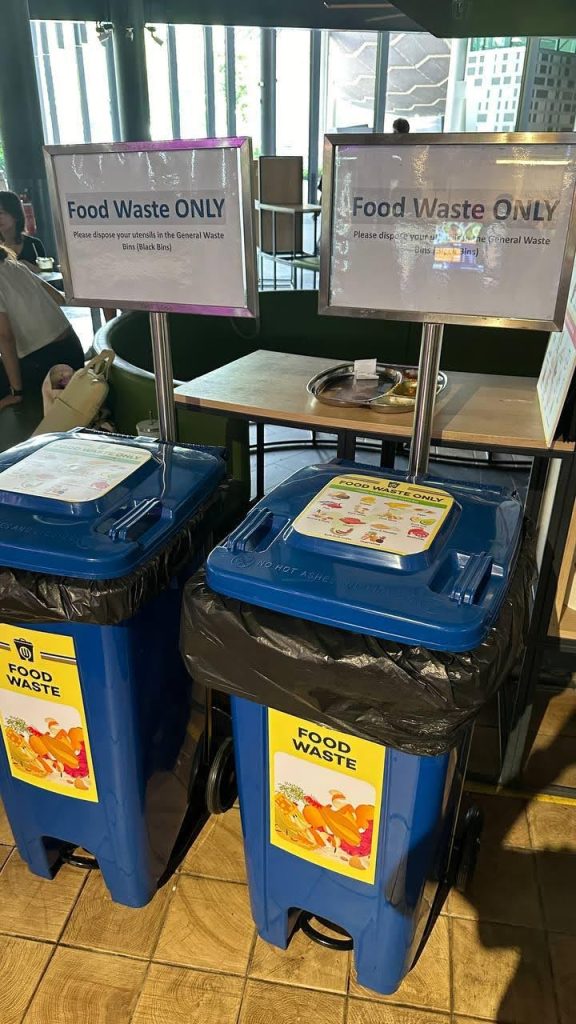1. Introduction
In a society on the brink of environmental damage due to collective habits, “Nurture for Nature” confronts the issue of food overconsumption. This game seeks to ignite a revolution, turning awareness into actionable change. It’s an invitation for everyone, not just eco-warriors, who desire to understand their environmental impact and be part of the solution. We aim to create a ripple effect by educating individuals and consequently, society as a whole. Following the saying “Rome wasn’t built in a day, and neither are habits.”, this game is designed to be an 8-week challenge.
2. 6D Playbook
Defining the Problem
Following the projection that Pulau Semakau will run out of space by 2035, our group chose to focus on the less explored area of sustainability: food overconsumption (food wastage), which appeals to all age groups. Excessive food waste is a pervasive issue which often stems from unconscious lifestyle choices worldwide. We aim to cultivate conscious consumption habits in individuals to shift culture and address this environmental issue.
In response to corporations like DBS leading efforts to reduce food wastage, we propose a straightforward composting project for company cafeterias.
By integrating interactive check-in points in our games and encouraging collaborative food compost projects at workplaces, we aim to promote conscious consumption and sustainable food wastage management in individuals and their communities.
Determining Goals
By the end of the 8-week game:
- Individual level: For 90% of our players to be well educated* on the consequences of food wastage on our environment and food preservation methods.
*measured via an end-of-campaign survey conducted to test their knowledge (if they can get 80% of the questions correct, they are considered ‘well educated’ on this topic) - Company level: For each company to implement and sustain at least one composting project per cafeteria.
Deciding Target Behaviours and Emotions
In-app behaviour
- Complete all challenges within an 8-week timeframe.
- Foster interactions among players by commenting and liking each other’s contributions.
Real-world behaviour
- Cultivate the habit of practising daily conscious consumption and act upon the knowledge of sustainable food wastage management. Eventually, to share their learnings with their peers, friends and family, encouraging them to play their same part.
- More specifically, for individuals to start their personal and community food compost projects, and apply food preservation techniques learnt in the game to daily life. Hopefully, a transformed sustainably-conscious community with regards to food.
Desired Emotions
- Experience a deep sense of fulfilment for actively reducing food wastage within one’s capacity.
- Find motivation to inspire others to embrace simple sustainable practices to minimise food wastage.
- Take greater personal responsibility for actions and inactions, with a focus on reducing one’s carbon footprint.
Describing and Profiling Players
Designing the Game
Game Features
As a well-structured 8-stage initiative aimed at raising awareness and encouraging habitual change regarding food overconsumption, each stage serves a unique purpose of educating, engaging, and empowering participants through gamification. Each of the range of challenges relates to the main theme of its respective stage, as the purpose of each stage corresponds to the growth stages of the seed and the life cycle of a plant. Player progression requires completing challenges in each stage before advancing.
Key Features
1. In Stage 2: Sprout, players are to write a reflection after watching the required videos. This form of gamification ensures education and reflection, encouraging critical thinking and self-awareness, leading to an increased sense of ownership for the issue at hand. The ability to view and like other players’ reflections serves as conversation catalysts which could lead to greater awareness and deeper understanding of food wastage in Singapore.
2. In Stage 5: Mature, participants play the ‘hangman’ game to recall their learnings in Stage 2: Sprout. This activity reinforces knowledge retention and aids in habit formation through critical thinking, ensuring a sense of achievement when they guess the word correctly.
Points are awarded and accumulated upon completion. Additionally, players can read and show appreciation for their peers’ contributions by “liking” them, earning points in the process. To tangibilize the sense of achievement from completing “Nurture for Nature”, actual rewards (e.g. GrabFood Vouchers, HPB Vouchers etc.) await players.
Diagnosing and Analyzing the Content
We acknowledge that changing habits takes time, so we created an 8-week game. However, this intensive design, with its many challenges, can be challenging for beginners who are new to changing their lifestyles for sustainability, or those who lack strong conviction to make a change. They might forget or give up on the challenges. Hence, to motivate game completion, we introduced a buddy program and offered tangible rewards upon finishing.
This 8-week game cannot completely overhaul consumption habits or significantly impact Pulau Semakau’s filling. However, it can still effectively educate and instil new habits in individuals over a 2-month time frame (aligning with a study by Phillippa Lally suggesting a 66-day timeframe), with hopes that it will create a ripple effect in the long run.
3. Learnings and Reflection
A challenge we encountered involved Gametize’s inability to support multiple users simultaneously editing the same project which hindered seamless collaboration. We overcame this by simply editing and designing the game with one Gametize account, while we established clear feedback and communication.
The greatest takeaway from this project was the potential and power of gamification – its creative capacity to foster new habits for social change. While navigating the 8-stages of this journey, we found ourselves revisiting our problem statement to ensure alignment with the goals envisioned for players. This project has increased our awareness of food waste’s environmental impact, encouraging us to cultivate our individual conscious consumption habits as we remind each other to reduce food wastage. Mid project, aside from more social media coverage on the new food waste law, we also started to see food compost bins within our campus.
“Nurture for Nature” aligns with the relevance of food wastage, and has indeed highlighted the role of individuals in addressing overconsumption while emphasising the collective power of individual changes in driving a more sustainable future.
1. Play the game first.
2. Use the Template game for your own initiatives.
Credits: [AY2023/24] G3 Team 6 – Erinn Seah Yee Xuan, Fauzan Aziem Bin Mohammad Effendi, Ng Hui Yi Joey, Woo Shi Ying, Joshua, Teng Wei Jie, Zheng Kai Xin

